Prospects for regulating ARMA and asset management discussed at UNBA

The Parliament adopted as a basis a comprehensive draft law No. 12374-d, which is intended to modify the functioning of the Asset Recovery and Management Agency, strengthen its institutional capacity and improve asset management mechanisms.
To discuss the prospects of these legislative changes, the National Bar Association organized and held a thematic roundtable on February 19. It was attended by MPs, heads of the ARMA, academics, insolvency officers and private enforcement officers.
Oleksiy Shevchuk, Chairman of the UNBA Committee on Information Policy and Media Relations, who moderated the event, reminded the audience of the difficult situations that arise in connection with the seizure of assets in criminal proceedings. «This is something that attorneys deal with directly, - he explained the importance of the bar's participation in the regulatory regulation of ARMA's activities. - Therefore, the purpose of our discussion today is to get a professional opinion from all participants in this process».
According to him, this is important so that tomorrow no one can say that an asset taken from a Russian oligarch does not benefit Ukrainian citizens, or that Ukrainian taxpayers are supporting Russian business at their own expense.
The new model of managing seized assets through insolvency officers was highlighted by Olena Duma, the Head of ARMA, who said that the agency had already evaluated the proposal.
In particular, insolvency receivers should receive certificates after completing training at the agency. «This is surprising, because the National Agency is not a scientific institution to conduct relevant training», - she commented. The Head of ARMA also had doubts about the method of selecting a bankruptcy trustee in an automatic mode, as she characterized it as «roulette».
«I personally wonder if we will not create some corruption components so that the insolvency officer, having no means, no funding, no help, no support, no access to the criminal proceedings in which the asset was seized, will do all this, - O. Duma asked. - The official says there are more than enough similar questions».
She recognizes that the selection of managers needs to be improved. «Our proposal is to improve the problematic issues we know about. This is mandatory pre-arrest planning, unblocking the management of corporate rights, setting clear deadlines... Now we need to create a document that will actually work, that will bring efficiency and transparency not only to the body, but also to Ukraine», - said O. Duma.
Although MP Hryhoriy Mamka did not vote for the draft law No. 12374-d, he believes that ARMA's activities should be modernized with due regard to the main idea for which the agency was created. In particular, it is necessary to continue the transparency that is currently being observed and to prevent the creation of new schemes that have now appeared in the new draft laws.
Analyzing the content of the draft law, he criticized the basis for appointing the management. «Do you remember how the USSR used to have an approach where the head of the National Agency would come in and force his deputies to write resignations? The draft law states that the deputy heads of the National Agency resign on the day the new head of the National Agency is appointed. The draft law does not provide for contracts, what are the risks of contracts, who will reimburse them», - the MP warned. - After all, the deputies are civil servants, not political figures. A sustainable public administration process must be ensured».
The monopolization of insolvency receiverships has also caused concern among the First Vice President of the Ukrainian Chamber of Commerce and Industry Mykhailo Nepran. «In essence, a rather risky and, more pragmatically, artificial monopoly is being created when the possibility for other categories of market participants to participate in this procedure is narrowed», - the CCI representative said. In his opinion, this provision should be excluded from the draft law.
However, the National Association of Insolvency Receivers of Ukraine supported the draft law (in terms of involving representatives of private professions in property management). «We are highly qualified personnel who need to be involved in this process», - said Oleksandr Bondarchuk, chairman of the association. He pointed out that an integral part of the daily work of insolvency officers is to take a set of measures to restore the solvency of debtors. Mr. Bondarchuk stated that there are «excellent examples in very unexpected industries», namely the restoration of solvency of, for example, shipyards or metallurgical enterprises.
Private contractors also had comments on the draft. In particular, regarding the conclusion of the contract, its terms, and the application of appropriate sanctions. «My colleagues and I are working comprehensively on this draft law in the association and will certainly be able to share our experience», - said Oksana Rusetska, head of the Association of Private Enforcement Officers of Ukraine. She also expressed interest in ensuring that the involvement of bailiffs in the management of seized property is as transparent and effective as possible. «The community of private enforcers is definitely ready to cope with the relevant functionality», - she assured.
At the end of the event, O. Shevchuk invited everyone to submit proposals to the UNBA. They will be summarized and submitted to the relevant committee of the Verkhovna Rada to prepare a high-quality document for the second reading.
Popular news
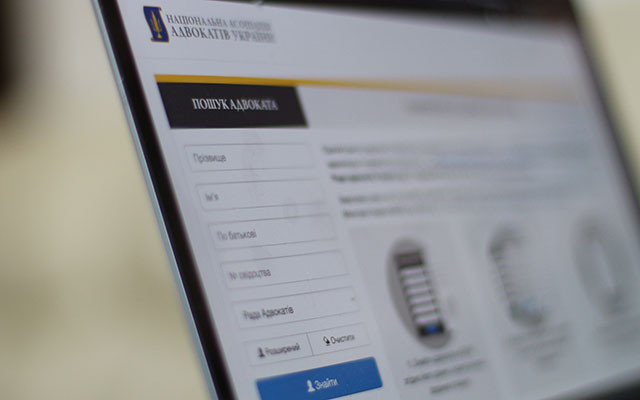
URAU
Access to advocate contacts in URAU has been restored
The Bar Council of Ukraine has opened up public access to data from the Unified Register of Advocates of Ukraine, which was closed at the start of the full-scale invasion in 2022. The decision was made at a meeting on December 12–13.
Self-government
Members of the QDCB are not required to submit declarations - BCU
Bar Council of Ukraine examined the legal status of members of bar self-government bodies and found that they are not required to submit declarations of persons authorized to perform functions of state or local self-government.
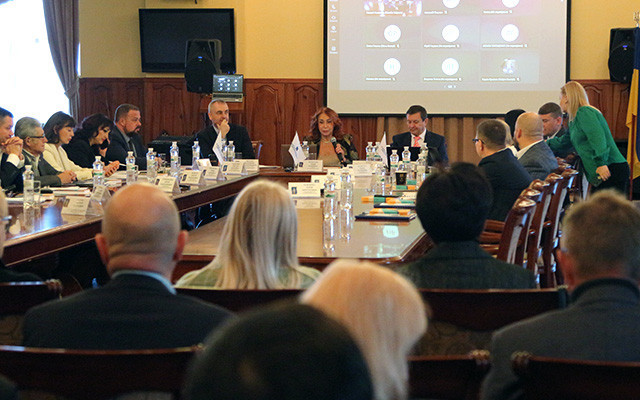
Self-government
BCU has identified 12 areas for implementing the Roadmap for advocacy
During its meeting on December 12, the Bar Council of Ukraine considered the Roadmap on the Rule of Law, approved by Order of the Cabinet of Ministers of Ukraine No. 475-r dated May 14, 2025. The document provides for the development and adoption of a draft law on improving the legal regulation of advocacy by the fourth quarter of 2026.
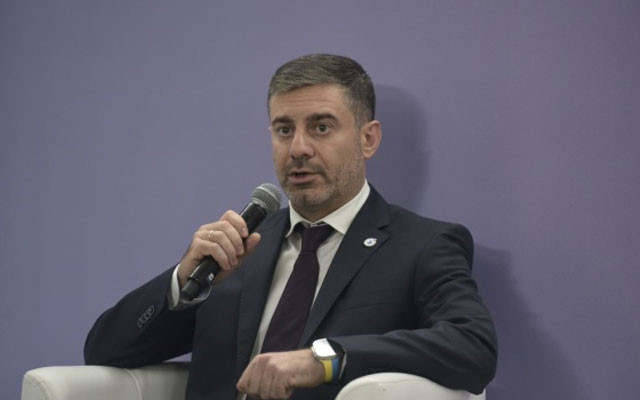
Guarantees of the practice of law
The Ombudsman acknowledged the problem of violation of the human right to legal aid in the TCC
The Verkhovna Rada Commissioner for human rights Dmytro Lubinets confirmed the existence of a problem with ensuring the constitutional right to professional legal assistance in territorial recruitment and social support centers.

Guarantees of the practice of law
The agreement on the provision of legal assistance is not public – BCU
Bar Council of Ukraine in its decision No. 111 dated October 18, 2025, responded to questions regarding the possibility of concluding legal assistance agreements by accepting a public offer, using an electronic form of the agreement, and posting information about legal assistance on websites.
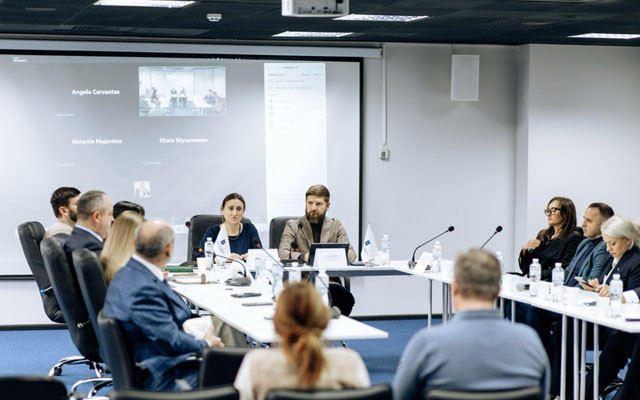
Discussion
Why preventive measures have turned into preventive punishment in Ukraine: round table discussion
The European approach, enshrined in the CPC, provides for detention as an exceptional preventive measure: courts must prove the impossibility of milder alternatives and carefully assess the risks. In practice, however, it is increasingly being applied almost automatically, eroding standards of freedom.
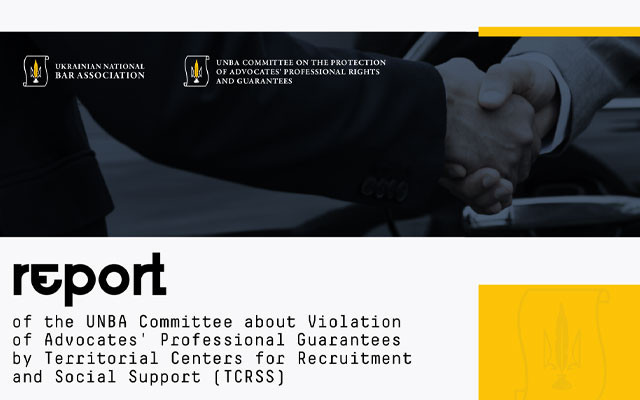
Guarantees of the practice of law
The UNBA presented a report on violations of advocates' rights in the TCC
The Committee for the protection of advocate's rights and guarantees of legal practice of the UNBA has prepared a consolidated report on violations of advocate's professional rights and guarantees of legal practice by territorial recruitment and social support centers for the period from 2022 to the first half of 2025.
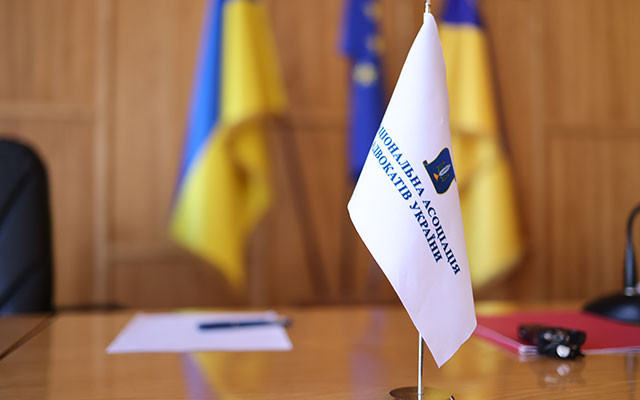
Self-government
Statement by the UNBA Committee regarding manipulative journalistic material
Statement by the UNBA Committee on information policy and interaction with the media regarding manipulative journalistic material aimed at discrediting the advocacy institution.
Publications

Censor.net Protecting advocates – protecting justice: addressing concerns about the new law

Ihor Kolesnykov A BRIEF SUMMARY REGARDING THE APPLICATION OF THE ORDER ON EXTENDED CONFISCATION IN LATVIA REGARDING FINANCIAL ASSETS OF…

Valentyn Gvozdiy WORKING IN A WAR ZONE

Lydia Izovitova Formula of perfection

Sergiy Vylkov Our judicial system is so built that courts do not trust advocates

Iryna Vasylyk Advocacy in the proclamation of Independence of Ukraine

Oleksandr DULSKY When we cross the border of the Supreme Anti-Corruption Court, we get into another department of the National Anti-Corruption…

Vadym Krasnyk The UNBA will work, and all obstacles and restrictions are only temporary inconveniences
